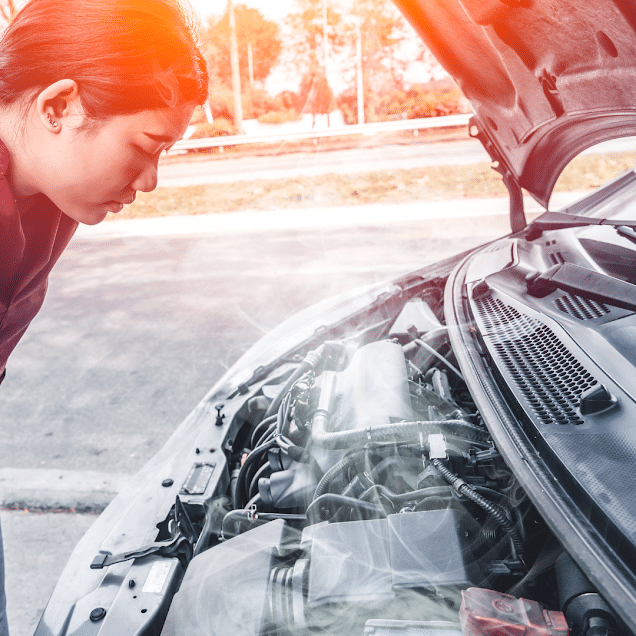Recently, we received a call from a Grandfather looking to get help for his teenage grandson. He recently purchased his grandson a used BMW. The car was experiencing electrical problems, resulting in the temperature gauge not working. The problem was ignored, and the vehicle continued to be used. Eventually, there came a day when the car wouldn’t start, but after letting it sit for a few hours, it restarted. Two weeks later, the car stopped running again. The grandson could not give much information to his grandfather over the phone. He couldn’t read the temperature because of the existing electrical issue and had no clue where the radiator cap was. Grandfather ended up having to drive out. He stated that the moment he lifted the hood, it smelled like something was burning.

As your child prepares to take on the responsibility of driving, especially if he/she is headed off to college, it’s essential to equip them with some basic knowledge about car care and maintenance. Ensuring their vehicle is in good condition will enhance its longevity and contribute to their safety on the road. Here are some key points to discuss with your child before they embark on this new journey:
- Regular Maintenance: Teach them the importance of regular maintenance routines, such as checking the oil level, tire pressure, and fluid levels. Encourage them to follow the manufacturer’s recommended service intervals and to keep a maintenance log.
- Ignoring Problems: Not every repair on a car is an emergency, but the longer you let a problem go unfixed, the increased likelihood of it snowballing into a larger, more costly repair.
- Dashboard Warning Lights: Explain the meaning of common warning lights on the dashboard and the necessary actions to take when they appear. Ignoring these lights can lead to more significant issues down the road.
- Emergency Preparedness: Stress the significance of having an emergency kit in the car. Include items like a spare tire (some cars don’t come with one), jack, jumper pack, flashlight, first aid kit, and basic tools. Instruct them on how to use these items effectively.
- Tire Care: Demonstrate how to change a flat tire using a jack safely. Emphasize the importance of proper tire inflation and its role in fuel efficiency, handling, and safety.
- Fluid Checks: Show them how to check essential fluids, including coolant, brake fluid, transmission fluid, and windshield washer fluid. Teach them how to identify potential leaks and when to top up or replace fluids. Remember that some newer vehicles do not have a way to check your oil or transmission fluid.
- Parking and Security: Discuss safe parking practices and ways to deter theft, such as using a steering wheel lock or parking in well-lit areas. Remind them to lock the car and avoid leaving valuables visible.
- Winter Driving: If they’ll experience cold weather, educate them about safe winter driving techniques and the importance of winter tires. Provide guidance on navigating icy or snowy conditions.
- Budgeting for Car Expenses: Help them create a budget that accounts for car-related expenses like gas, maintenance, insurance, and potential repairs. Understanding these costs will contribute to responsible financial management.
- Local Mechanics: Suggest researching and identifying reputable local mechanics near their college. Encourage them to seek recommendations and establish a relationship with a trustworthy professional.
By imparting these car care tips, you’ll empower your child to take responsibility for their vehicle’s upkeep and safety. They can always contact a qualified mechanic for guidance if they have any questions or encounter issues.
We’re here to provide assistance whenever needed.

Leave a Reply